- Home
- James Rollins
Amazonia Page 11
Amazonia Read online
Page 11
As she crossed down the long hall toward the double doors, she distracted herself with the mystery of the case. Gerald Clark had been missing for four years, then walked out of the jungle with a new arm, undoubtedly a miraculous cure. But contrarily, his body had been ravaged by tumors, a cancerous onslaught that had started no more than three months prior. So why the sudden burst of cancer? Why the preponderance of the monstrous teratocarcinomas? And ultimately, where the hell had Gerald Clark been these past four years?
She shook her head. It was too soon for answers. But she had faith in modern science. Between her own research and the fieldwork being done by her children, the mystery would be solved.
Lauren pushed into the locker room, slipped blue paper booties over her shoes, then smeared a dab of Vicks VapoRub under her nose to offset the smells and donned a surgical mask. Once ready, she entered the lab.
It looked like a bad horror movie. Gerald Clark's body lay splayed open like a frog in biology class. Half the contents of his body cavities lay either wrapped in redand-orange hazardous-waste bags or were resting atop steel scales. Across the room, samples were being prepped in both formaldehyde and liquid nitrogen. Eventually Lauren would see the end result as a pile of neatly inscribed microscope slides, stained and ready for her review, just the way she preferred it.
As Lauren entered the room, some of the stronger smells cut through the mentholated jelly: bleach, blood, bowel, and necrotic gases. She tried to concentrate on breathing through her mouth.
Around her, men and women in bloody aprons worked throughout the lab, oblivious to the horror. It was an efficient operation, a macabre dance of medical professionals.
A tall man, skeletally thin, lifted an arm in greeting and waved her over. Lauren nodded and slipped past a woman tilting a hanging tray and sliding Gerald Clark's liver into a waste bag.
"What did you find, Stanley?" Lauren asked as she approached the worktable.
Dr. Hibbert pointed down, his voice muffled by his surgical mask. "I wanted you to see this before we cut it out."
They stood at the head of the slanted table holding Gerald Clark's body. Bile, blood, and other bodily fluids flowed in trickles to the catch bucket at the other end. Closer at hand, the top of Gerald Clark's skull had been sawed open, exposing the brain beneath.
"Look here," Stanley said, leaning closer to the purplish brain.
With a thumb forceps, the pathologist carefully pulled back the outer meningeal membranes, as if drawing back a curtain. Beneath the membranes, the gyri and folds of the cerebral cortex were plainly visible, traced with darker arteries and veins.
"While dissecting the brain from the cranium, we found this."
Dr. Hibbert separated the right and left hemispheres of the cerebrum. In the groove between the two sections of the brain lay a walnut-size mass. It seemed to be nestled atop the corpus callosum, a whitish channel of nerves and vessels that connected the two hemispheres.
Stanley glanced at her. "It's another teratoma...or maybe a teratocarcinoma, if it's like all the others. But watch this. I've never seen anything like this." Using his thumb forceps, he touched the mass.
"Dear God!" Lauren jumped as the tumor flinched away from the tip of his forceps. "It...it's moving!"
"Amazing, isn't it? That's why I wanted you to see it. I've read about this property of some teratomic masses. An ability to respond to external stimuli. There was one case even of a well-differentiated teratoma that had enough cardiac muscle to beat like a heart."
Lauren finally found her voice. "But Gerald Clark's been dead for two weeks."
Stanley shrugged. "I imagine, considering where it's located, that it's rich with nerve cells. And a good portion of them must still be viable enough to respond weakly to stimulation. But I expect this ability will quickly fade as the nerves lose juice and the tiny muscles exhaust their reserve calcium."
Lauren took a few deep breaths to collect her thoughts. "Even so, the mass must be highly organized to develop a flinch reflex."
"Undoubtedly...quite organized. I'll have it sectioned and slides assembled ASAP." Stanley straightened. "But I thought you'd appreciate personally seeing it in action first."
Lauren nodded. Her eyes shifted from the tumor in the brain to the corpse's arm. A sudden thought rose in her mind. "I wonder," she mumbled.
"What?"
Lauren pictured how the mass had twitched. "The number of the teratomas and the mature development of this particular tumor could be clues to the mechanism by which Clark's arm grew back."
The pathologist's eyes narrowed. "I'm not following you."
Lauren faced him, glad to find something else to stare at than the ravaged body. "What I'm saying is--and this is just a conjecture, of course--what if the man's arm is just a teratoma that grew into a fully functioning limb?"
Stanley's brows rose high. "Like some form of controlled cancer growth? Like a living, functioning tumor?"
"Why not? That's pretty much how we all developed. From one fertilized cell, our bodies formed through rapid cellular proliferation, similar to cancer. Only this profusion of cells differentiated into all the proper tissues. I mean, isn't that the goal of most stem cell research? To discover the mechanism for this controlled growth? What causes one cell to become a bone cell and its neighbor a muscle cell and the one after that a nerve cell?" Lauren stared at the splayed corpse of Gerald Clark, not in horror any longer but in wonder. "We may be on our way to answering that very mystery."
"And if we could succeed in discovering the mechanism..."
"It would mean the end of cancer and would revolutionize the entire medical field."
Stanley shook his head and swung away, returning to his bloody work. "Then let's pray your son and daughter succeed in their search."
Lauren nodded and retreated back across the morgue. She checked her watch. Speaking of Frank and Kelly, it was getting close to the designated conference call. Time to compare notes. Lauren glanced back one last time to the ruin that was left of Gerald Wallace Clark. "Something's out in that jungle," she mumbled to herself. "But what?"
AUGUST 7, 8:32 P.M.
AMAZON JUNGLE
Kelly stood off from the others, trying her best to assimilate the news her mother had reported. She stared out into the jungle, serenaded by the endless chorus of locusts and river frogs. Firelight failed to penetrate more than a few yards into the shadowed depths of the forest. Beyond the glow, the jungle hid its mysteries.
Closer at hand, a group of Rangers knelt, setting up the camp's perimeter motion-sensor system. The laser grid, rigged a few feet off the ground and established between the jungle and the camp, was meant to keep any large predator from wandering too near without being detected.
Kelly stared beyond their labors to the dark forest.
What had happened to Agent Clark out there?
A voice spoke near her shoulder, startling her. "Grue-some news indeed."
Kelly glanced over and found Professor Kouwe standing quietly at her side. How long had he been there? Clearly the shaman had not lost his innate abilities to move noiselessly across the forest floor. "Y...Yes," she stammered. "Very disturbing."
Kouwe slipped out his pipe and began stoking it with tobacco, then lit it with a fiery flourish. The pungent odor of smoky tobacco welled around them. "And what of your mother's belief that the cancers and the regenerated arm might be connected?"
"It's intriguing...and perhaps not without merit."
"How so?"
Kelly rubbed the bridge of her nose and gathered her thoughts. "Before I left the States to come here, I did a literature search on the subject of regeneration. I figured it might better prepare me for anything we find."
"Hmm...very wise. When it comes to the jungle, preparation and knowledge can mean the difference between life and death."
Kelly nodded and continued with her thoughts, glad to express them aloud and bounce them off someone else. "While conducting this research, I came across an interestin
g article in the Proceedings of the National Academy of Sciences. Back in 1999, a research team in Philadelphia raised a group of mice with damaged immune systems. The mice were to be used as a model to study multiple sclerosis and AIDS. But as they began working with the immune-compromised creatures, an odd and unexpected phenomenon developed."
Kouwe turned to her, one eyebrow raised. "And what was that?"
"The researchers had punched holes in the mice's ears, a common way of marking test animals, and discovered that the holes healed amazingly fast, leaving no trace of a wound. They had not just scarred over, but had regenerated cartilage, skin, blood vessels, even nerves." Kelly let this news sink in, then continued. "After this discovery, the lead researcher, Dr. Ellen Heber-Katz, tried a few experiments. She amputated a few mice's tails, and they grew back. She severed optic nerves, and they healed. Even the excision of a section of spinal cord grew back in less than a month. Such phenomenal regeneration had never been seen in mammals."
Kouwe removed his pipe, his eyes wide. "So what was causing it?"
Kelly shook her head. "The only difference between these healing mice and ordinary mice was their defective immune systems."
"And the significance?"
Kelly suppressed a grin, warming to the subject, especially with such an astute audience. "From the study of animals with the proven ability to regenerate limbs--starfish, amphibians, and reptiles--we do know their immune systems are rudimentary at best. Therefore, Dr. Heber-Katz hypothesized that eons ago, mammals made an evolutionary trade-off. To defend against cancers, we relinquished the ability to regenerate bodily limbs. You see, our complex immune systems are designed specifically to eliminate inappropriate cell proliferation, like cancers. Which is beneficial, of course, but at the same time, such immune systems would also block a body's attempt to regenerate a limb. It would treat the proliferation of poorly differentiated cells necessary to grow a new arm as cancerous and eliminate it."
"So the complexity of our immune systems both protects and damns us."
Kelly narrowed her eyes as she concentrated. "Unless something can safely turn off the immune system. Like in those mice."
"Or like in Gerald Clark?" Kouwe eyed her. "You're suggesting something turned off his immune system so he was able to regenerate his arm, but this phenomenon also allowed multiple cancers to sprout throughout his body."
"Perhaps. But it has to be more complicated than that. What's the mechanism? Why did all the cancers arise so suddenly?" She shook her head. "And more important, what could trigger such a change?"
Kouwe nodded toward the dark jungle. "If such a trigger exists, it might be found out there. Currently three-quarters of all anticancer drugs in use today are derived from rain forest plants. So why not one plant that does the opposite--one that causes cancer?"
"A carcinogen?"
"Yes, but one with beneficial side effects...like regeneration."
"It seems improbable, but considering Agent Clark's state, anything might be possible. Over the next few days, at my request, the MEDEA researchers will be investigating the status of Gerald Clark's immune system and examining his cancers more closely. Maybe they'll come up with something."
Kouwe blew out a long stream of smoke. "Whatever the ultimate answer is, it won't come from a lab. Of that I'm certain."
"Then from where?"
Instead of answering, Kouwe simply pointed the glowing bowl of his pipe toward the dark forest.
Hours later, deeper in the forest, the naked figure crouched motionless in the murk of the jungle, just beyond the reach of the firelight. His slender body had been painted with a mix of ash and meh-nu fruit, staining his skin in a complex pattern of blues and blacks, turning him into a living shadow.
Ever since first dark, he had been spying upon these outsiders. Patience had been taught to him by the jungle. All teshari-rin, tribal trackers, knew success depended less on one's actions than on the silence between one's steps.
He maintained his post throughout the night, a dark sentinel upon the camp. As he crouched, he studied the giant men, stinking with their foreignness, while they circled around and around the site. They spoke in strange tongues and bore clothing most odd.
Still, he watched, spying, learning of his enemy.
At one point, a cricket crawled across the back of his hand as his palm rested in the dirt. One eye watched the camp, while the other watched the small insect scratch its hind legs together, a whisper of characteristic cricket song.
A promise of dawn.
He dared wait no longer. He had learned all he could. He rose smoothly to his feet, the motion so swift and silent that the cricket remained on the back of his steady hand, still playing its last song of the night. He raised the hand to his lips and blew the surprised insect from its perch.
With a final glance to the camp, he fled away into the jungle. He had been trained to run the forest paths without disturbing a single leaf. None would know he had passed.
Moreover, the tracker knew his ultimate duty.
Death must come to all but the Chosen.
Six
The Amazon Factor
AUGUST 11, 3:12 P.M.
AMAZON JUNGLE
Nate kept one finger fixed to his shotgun's trigger, the muzzle pointed ahead. The caiman had to be almost twenty feet long. It was a huge specimen of Melanosuchus niger, the black caiman, the king of the giant crocodilian predators of the Amazon rivers. It lay atop the muddy bank, sunning in the midafternoon heat. Black armored scales shone dully. Its maw gaped slightly open. Jagged yellow teeth, longer than Nate's own palm, lined the cavity. Its bulging, ridged eyes were solid black, cold and dead, the eyes of a prehistoric monster. Stone still, it was impossible to tell if the great beast even acknowledged the trio of approaching boats.
"Will it attack?" Kelly whispered behind him.
Nate shrugged without looking back. "They're unpredictable. But if we leave it alone, it should leave us alone."
Nate crouched in the prow of the middle pontoon boat. He shared the craft with the two O'Briens, Richard Zane, and Anna Fong. A single soldier, Corporal Okamoto, manned the small outboard engine in the boat's stern. The stocky Asian corporal had developed the habit of whistling almost nonstop, which after four days of motoring up the wide tributary had grown to be excruciating. But at least the giant monster lounging on the bank had squelched the man's tuneless noise.
Ahead, the lead boat puttered past the beast, sticking close to the opposite shore. The starboard pontoon bristled with M-16s, all pointing toward the black caiman.
Each boat held a complement of six team members. The lead boat carried three soldiers and the rest of the civilians: Professor Kouwe, Olin Pasternak, and Manny, who lounged with his pet jaguar in the center of the boat. Tor-tor had been on boats before and seemed to enjoy this means of transportation, tail lazily flicking, ears pricked for noises, eyes mostly in a half-lidded drowse.
The rear boat held the other six Rangers, anchored by Captain Waxman.
"They should just shoot the damn thing," Frank said.
Nate glanced to the man. "It's an endangered species. In the last century, they were poached to near extinction. Only lately have their numbers grown."
"And why does this news not please me?" Frank muttered, glancing to the waters around them. He tugged the bill of his baseball cap lower as if he were trying to hide behind it.
"The caimans kill hundreds every year," Zane mumbled, hunched down beside his pontoon. "They've swamped boats, attacking anything. I read about a black caiman found dead with two outboard motors in its belly, swallowed whole. I'm with Mr. O'Brien. A few well-placed shots..."
By now, the lead boat was past the beast's sunning spot, and Nate's boat followed next, moving slowly against the sludgy current as it passed the caiman, motor rumbling.
"Marvelous," Nate said. He faced the creature, no farther away than thirty yards. It was monstrous, a creature from another time. "It's bloody beautiful."
"A
male, isn't it?" Anna Fong asked, staring avidly.
"From the ridge lines and shape of the nostrils, I'd agree."
"Shh!" Frank hissed at them.
"It's moving!" Kelly yelped, shifting from her seat to the far side of the boat. She was quickly followed by Richard Zane.
The armored head swung slowly, now following their boat.
"It's waking up," Frank said.
"It was never asleep," Nate corrected as they glided safely past. "It's just as curious about us as we are about it."
"I'm sure as hell not curious," Frank said, clearly glad to be past the monster. "In fact, it can just kiss my hairy--"

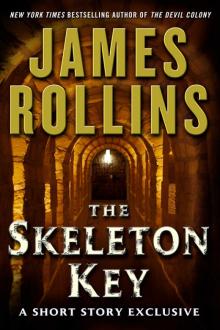 The Skeleton Key
The Skeleton Key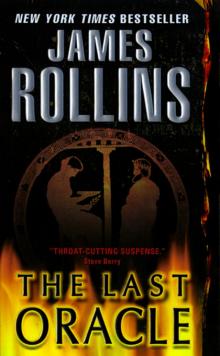 The Last Oracle
The Last Oracle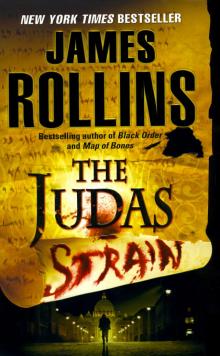 The Judas Strain
The Judas Strain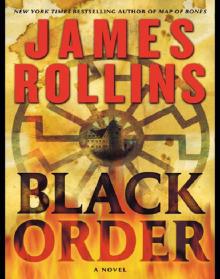 Black Order
Black Order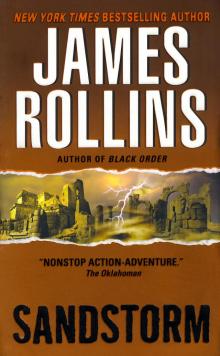 Sandstorm
Sandstorm Ghost Ship
Ghost Ship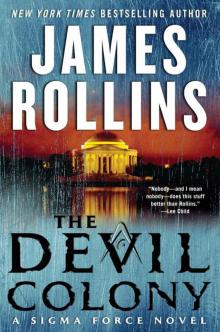 The Devil Colony
The Devil Colony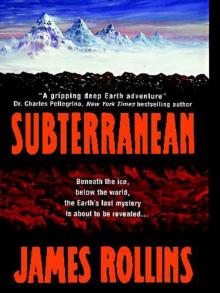 Subterranean
Subterranean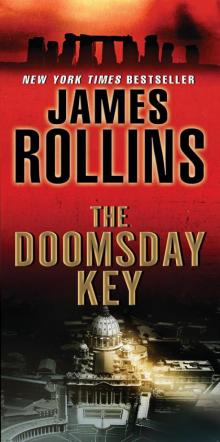 The Doomsday Key
The Doomsday Key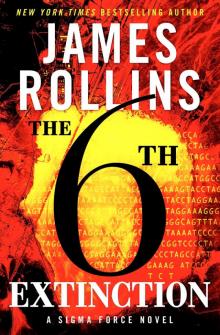 The 6th Extinction
The 6th Extinction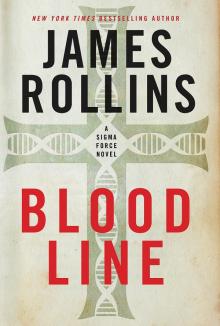 Bloodline
Bloodline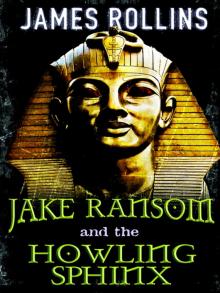 Jake Ransom and the Howling Sphinx
Jake Ransom and the Howling Sphinx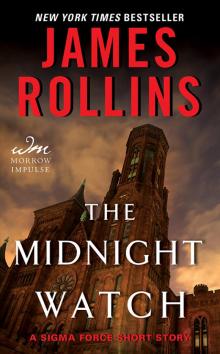 The Midnight Watch
The Midnight Watch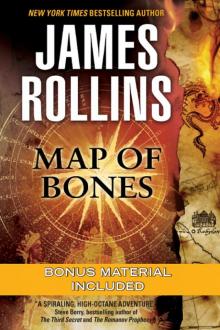 Map of Bones
Map of Bones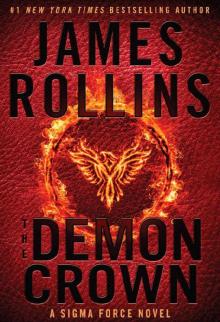 The Demon Crown
The Demon Crown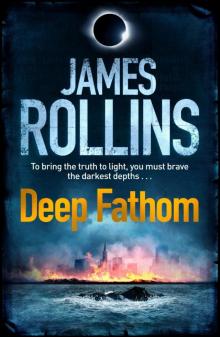 Deep Fathom
Deep Fathom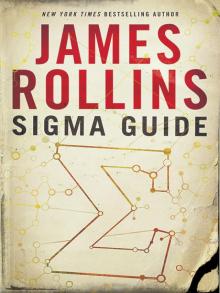 Sigma Guide
Sigma Guide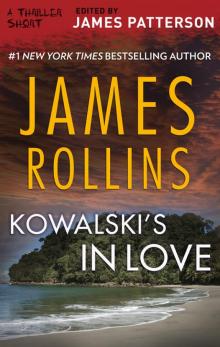 Kowalski's in Love
Kowalski's in Love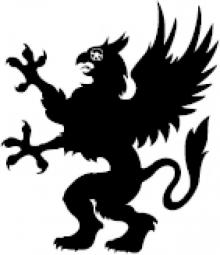 Jake Ransom and the Skull King's Shadow
Jake Ransom and the Skull King's Shadow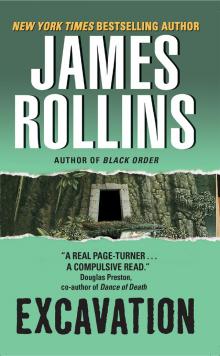 Excavation
Excavation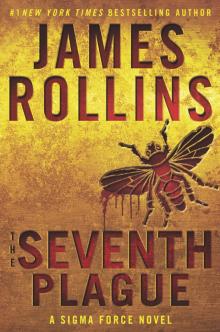 The Seventh Plague
The Seventh Plague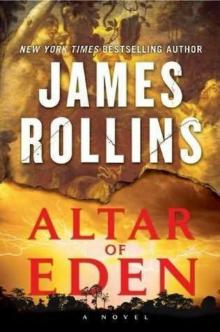 Altar of Eden
Altar of Eden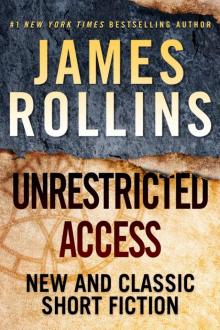 Unrestricted Access: New and Classic Short Fiction
Unrestricted Access: New and Classic Short Fiction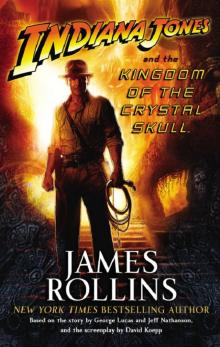 Indiana Jones and the Kingdom of the Crystal Skull
Indiana Jones and the Kingdom of the Crystal Skull Crucible
Crucible The Eye of God
The Eye of God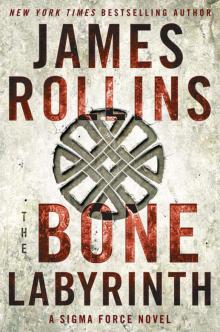 The Bone Labyrinth
The Bone Labyrinth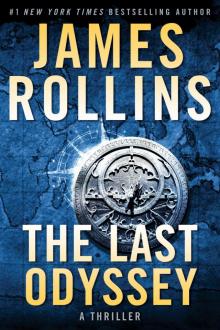 The Last Odyssey: A Thriller
The Last Odyssey: A Thriller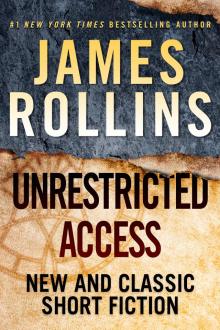 Unrestricted Access
Unrestricted Access Amazonia
Amazonia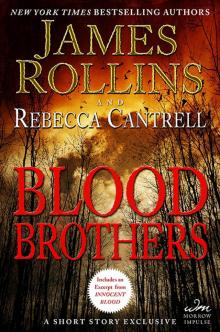 Blood Brothers: A Short Story Exclusive
Blood Brothers: A Short Story Exclusive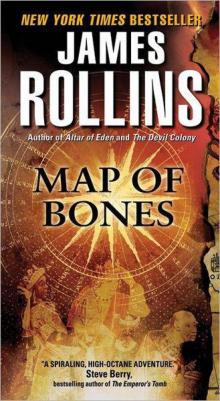 Map of Bones: A Sigma Force Novel
Map of Bones: A Sigma Force Novel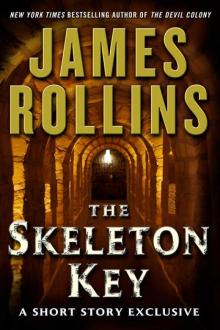 The Skeleton Key (sigma force)
The Skeleton Key (sigma force)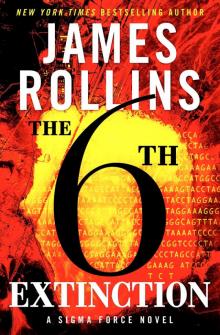 Sigma Force 10 - The Sixth Extinction
Sigma Force 10 - The Sixth Extinction Innocent Blood
Innocent Blood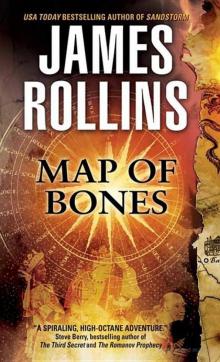 Map of Bones sf-2
Map of Bones sf-2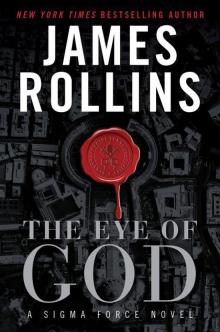 The Eye of God: A Sigma Force Novel
The Eye of God: A Sigma Force Novel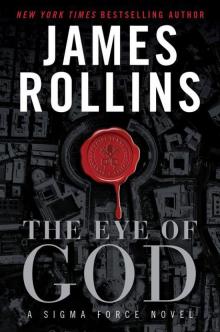 The Eye of God: A Sigma Force Novel sf-9
The Eye of God: A Sigma Force Novel sf-9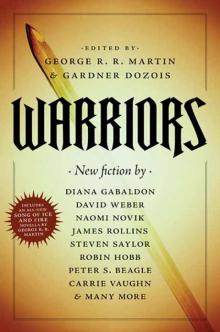 The Pit
The Pit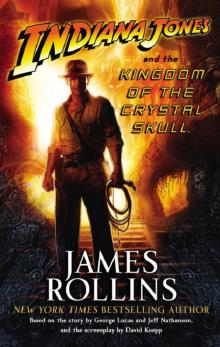 Indiana Jones and the The Kingdom Of The Crystal Skull
Indiana Jones and the The Kingdom Of The Crystal Skull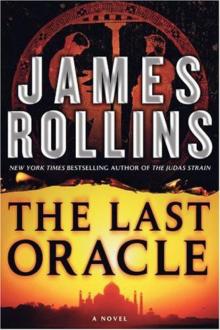 The Last Oracle (2008) sf-5
The Last Oracle (2008) sf-5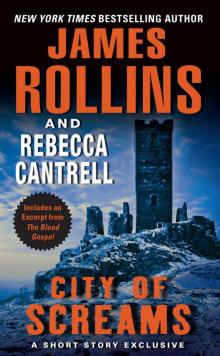 City of Screams
City of Screams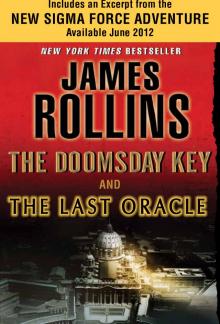 The Doomsday Key and The Last Oracle with Bonus Excerpts
The Doomsday Key and The Last Oracle with Bonus Excerpts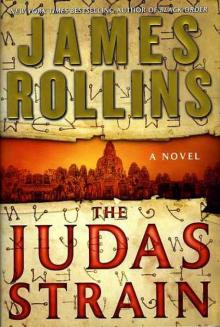 The Judas Strain sf-4
The Judas Strain sf-4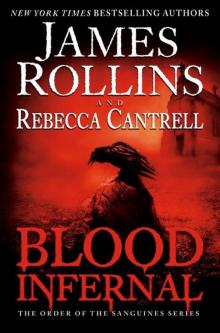 Blood Infernal
Blood Infernal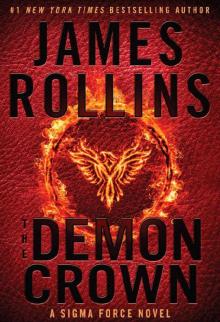 The Demon Crown: A Sigma Force Novel
The Demon Crown: A Sigma Force Novel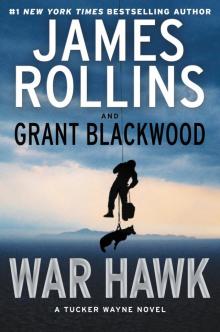 War Hawk: A Tucker Wayne Novel
War Hawk: A Tucker Wayne Novel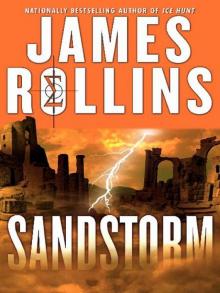 SANDSTORM sf-1
SANDSTORM sf-1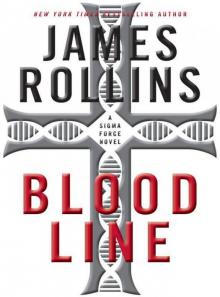 Bloodline: A Sigma Force Novel
Bloodline: A Sigma Force Novel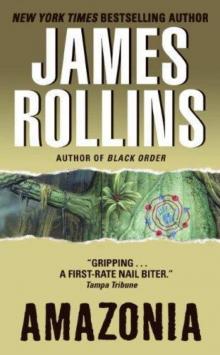 Amazonia: a novel
Amazonia: a novel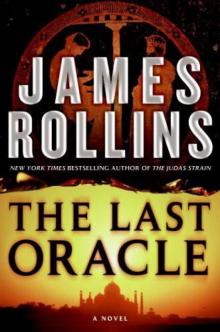 The Last Oracle: A Sigma Force Novel
The Last Oracle: A Sigma Force Novel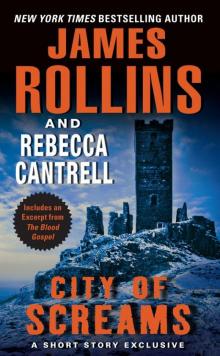 City of Screams (the order of the sanguines)
City of Screams (the order of the sanguines)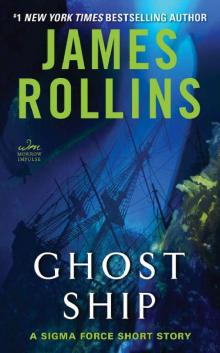 Ghost Ship: A Sigma Force Short Story
Ghost Ship: A Sigma Force Short Story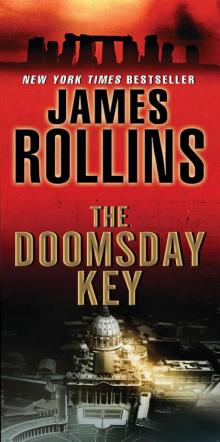 The Doomsday Key: A Sigma Force Novel
The Doomsday Key: A Sigma Force Novel